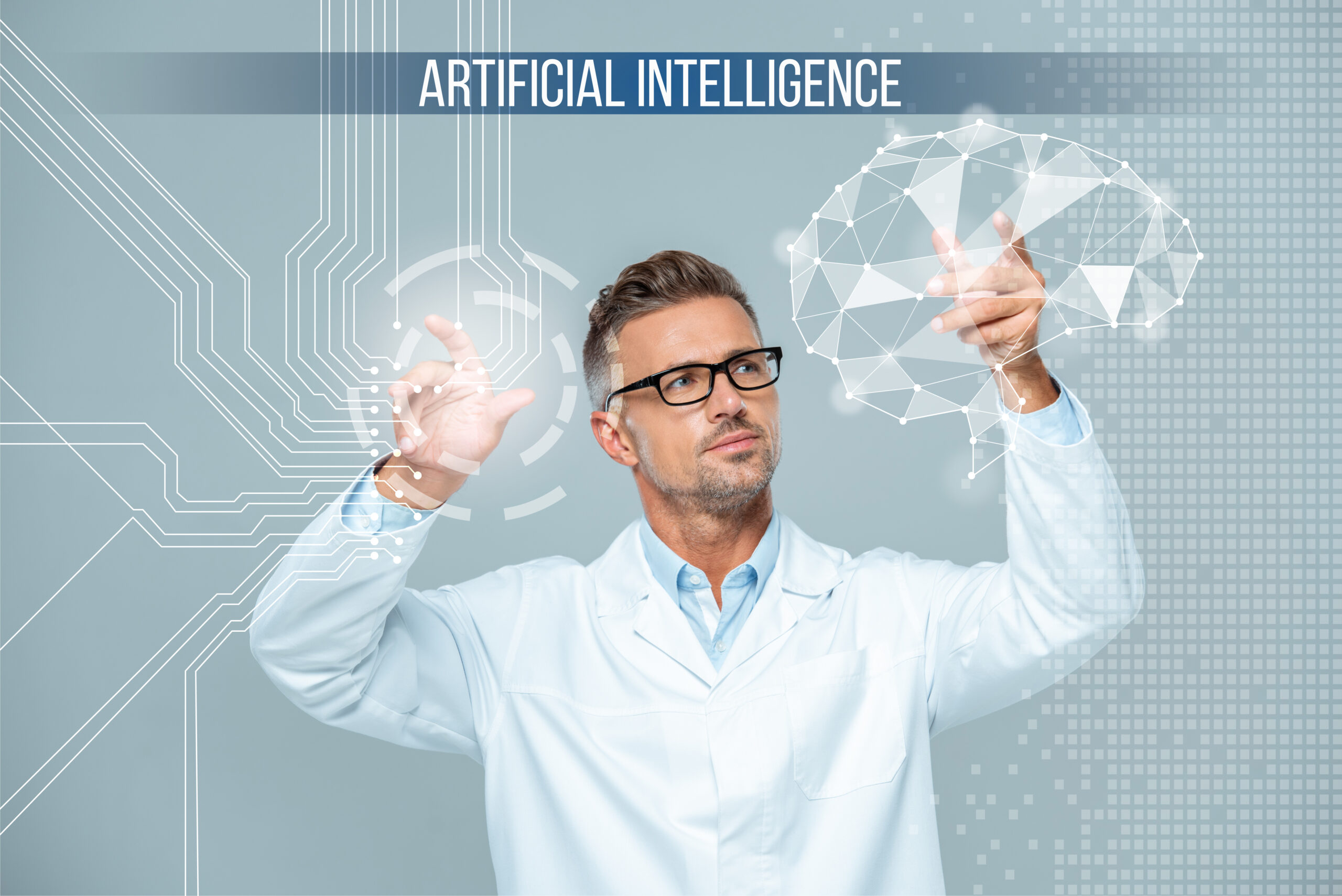Artificial intelligence stands at the forefront of innovation in the rapidly evolving landscape of business technology. Understanding AI’s transformative potential is crucial for your organization’s success as one navigates this new era. Salesforce CEO Marc Benioff offers invaluable insights into the dawn of AI abundance and its far-reaching implications for business innovation. His vision of AI as a ubiquitous force, reshaping workforces and driving unprecedented customer experiences, provides a roadmap for your company’s future. This article explores Benioff’s perspective on responsible AI integration, the need for new workforce skills, and how AI abundance will redefine business operations, offering you a glimpse into the AI-driven future of the enterprise.
The Dawning of the Era of AI Abundance

As we stand on the cusp of a new technological revolution, the era of AI abundance is rapidly approaching. This transformative period promises to reshape industries, redefine business operations, and unlock unprecedented opportunities for innovation and growth.
AI Abundance Driving Unprecedented Accessibility and Integration
AI is no longer confined to the realm of tech giants and specialized research labs. Today, we’re witnessing a democratization of AI technologies, making them increasingly accessible to businesses of all sizes. This widespread availability is driving a new wave of innovation, as companies leverage AI to optimize processes, enhance customer experiences, and drive decision-making.
Transforming Workforce Dynamics
The rise of AI is not just changing how businesses operate; it’s fundamentally altering the nature of work itself. As AI systems become more sophisticated, employees are finding themselves in a new paradigm where human creativity and AI capabilities synergize to produce extraordinary results. This shift necessitates a reimagining of workforce skills and roles, with a growing emphasis on AI literacy and human-AI collaboration.
Ethical Considerations in the AI-Driven World
While the potential of AI is immense, its rapid proliferation also raises important ethical questions. As we enter this new era, businesses must approach AI adoption with a strong ethical framework, ensuring responsible use and mitigating potential risks. Balancing innovation with ethical considerations will be key to harnessing the full potential of AI while maintaining trust and integrity in the business world.
Harnessing AI Abundance Transformative Power for Business Innovation
In the rapidly evolving landscape of modern business, artificial intelligence (AI) has emerged as a game-changing force, reshaping how companies operate and innovate. As we enter an era of AI abundance, organizations must adapt to harness its full potential.
Revolutionizing Customer Experiences
AI’s ability to process vast amounts of data and generate actionable insights is transforming customer interactions. By leveraging AI-powered analytics, businesses can now anticipate customer needs with unprecedented accuracy, delivering personalized experiences at scale. This shift from reactive to proactive customer service is setting new standards for customer satisfaction and loyalty.
Augmenting Human Creativity and Decision-Making
Far from replacing human workers, AI is augmenting their capabilities, allowing them to focus on higher-value tasks. By automating routine processes, AI frees up employees to engage in creative problem-solving and strategic thinking. This symbiosis between human intuition and machine intelligence is driving innovation across industries, from product development to marketing strategies.
Ethical Considerations in AI Implementation
As businesses rush to adopt AI, it’s crucial to balance technological advancement with ethical considerations. Responsible AI implementation involves ensuring transparency, fairness, and accountability in AI systems. Companies must prioritize data privacy, mitigate bias, and consider the societal impact of their AI-driven decisions to build trust and maintain their social license to operate in this new era.
Reskilling Workforces for the AI-Enhanced Workplace
As artificial intelligence continues to reshape industries, the need for a workforce equipped to thrive in AI-enhanced environments has become paramount. Organizations must prioritize reskilling initiatives to ensure their employees can effectively leverage AI technologies and contribute to innovation.
Identifying Critical AI Skills
To prepare for the AI-driven future, companies should focus on developing skills such as:
Data literacy and analysis
AI ethics and responsible implementation
Machine learning fundamentals
Algorithmic thinking and problem-solving
Human-AI collaboration techniques
These competencies will enable employees to work alongside AI systems, interpret AI-generated insights, and make informed decisions.
Implementing Continuous Learning Programs
Organizations must foster a culture of continuous learning to keep pace with rapidly evolving AI technologies. This can be achieved through:
Regular training workshops and seminars
Online learning platforms with AI-focused courses
Cross-functional projects that expose employees to various AI applications
By investing in ongoing education, companies can ensure their workforce remains adaptable and innovative in the face of technological advancements.
Balancing Technical and Soft Skills
While technical proficiency is crucial, it’s equally important to nurture soft skills that complement AI capabilities. Emphasize the development of:
Critical thinking and creativity
Emotional intelligence and empathy
Adaptability and resilience
These human-centric skills will become increasingly valuable as AI takes on more routine tasks, allowing employees to focus on complex problem-solving and strategic decision-making.
Embedding Ethical AI – The Salesforce Approach
Prioritizing Responsible AI Integration in The Era of AI Abundance
At the core of Salesforce’s AI strategy lies a commitment to ethical implementation. Marc Benioff emphasizes that as AI becomes more prevalent, it’s crucial to embed responsible practices from the ground up. This approach ensures that AI tools not only drive innovation but also align with societal values and customer trust.
Salesforce has developed a comprehensive framework for ethical AI deployment, focusing on transparency, accountability, and fairness. By prioritizing these principles, the company aims to set an industry standard for responsible AI use, demonstrating that cutting-edge technology and ethical considerations can coexist harmoniously.
Balancing Innovation with Ethical Considerations
Benioff acknowledges the delicate balance between pushing technological boundaries and maintaining ethical integrity. Salesforce’s approach involves continuous assessment of AI applications to identify and mitigate potential biases or unintended consequences. This proactive stance helps the company stay ahead of ethical challenges while still harnessing AI’s transformative power.
To achieve this balance, Salesforce has:
Established an AI Ethics Advisory Board
Implemented rigorous testing protocols for AI models
Invested in ongoing employee education on AI ethics
By weaving these practices into the fabric of their AI development process, Salesforce aims to create a model for responsible innovation that other companies can emulate.
AI Abundance: Positioning AI as a Driver of Future Growth
Augmenting Human Capabilities
In the era of AI abundance, artificial intelligence is poised to become a key driver of future business growth. As Marc Benioff envisions, AI will not replace human workers but rather augment their capabilities, enabling unprecedented levels of creativity and decision-making. By leveraging AI-powered tools, employees can focus on higher-value tasks that require uniquely human skills such as emotional intelligence, complex problem-solving, and strategic thinking.
Revolutionizing Customer Experiences in the Era of AI Abundance
AI’s potential to transform customer experiences is immense. With the ability to process and analyze vast amounts of data in real-time, businesses can gain deeper insights into customer preferences and behaviors. This allows for hyper-personalized interactions, predictive customer service, and the development of innovative products and services tailored to evolving market needs. As AI becomes more sophisticated, it will enable companies to anticipate and meet customer demands with unprecedented speed and accuracy.
Driving Innovation Across Industries
The widespread adoption of AI is set to catalyze innovation across various sectors. From healthcare and finance to manufacturing and retail, AI-driven solutions are opening up new possibilities for efficiency, productivity, and growth. As businesses integrate AI into their core operations, they’ll be better equipped to identify emerging trends, optimize processes, and create novel solutions to complex challenges. This technological revolution promises to reshape entire industries, creating new opportunities for those who successfully harness AI’s potential.
Key Takeaways
Let’s consider how this transformative technology can propel businesses forward. Embrace AI as a catalyst for innovation, reshaping operations and customer experiences. Prepare the workforce for an AI-enhanced future by prioritizing new skill development. Remember to approach AI integration responsibly, balancing its immense potential with ethical considerations. Leveraging AI’s capabilities to augment human creativity and decision-making, positions an organization at the forefront of industry innovation. The future of business lies in harnessing AI’s power to meet evolving customer needs with unprecedented precision and speed. As Marc Benioff envisions, AI will soon become an integral part of the business fabric, driving growth and unlocking new possibilities.
More Stories
Huawei and Keppel Forge Green Data Future with Solar and Battery Storage Pact
Huawei and Keppel formed a groundbreaking partnership to transform energy use in ASEAN data centers. They signed a Memorandum of Understanding to integrate solar and battery storage solutions.
Kakao Plans Advanced AI-Ready Data Center in Gyeonggi to Boost Service Resilience
The company will build an advanced AI-ready data center in Namyangju, Gyeonggi Province. Notably, this ambitious project is set for completion by 2028. It responds to key lessons from the October 2022 service disruption.
Google’s Find Hub Gains Precision with UWB Support
Google has revamped its Find My Device network into the newly christened “Find Hub,” now boasting Ultra Wideband (UWB) support. Scheduled for release in May 2025, this update promises to revolutionize the precision of tracking lost items, allowing you to pinpoint both the distance and direction of your belongings with unprecedented accuracy.
Quark’s Deep Search: Alibaba’s AI App Redefines China’s Search Landscape
Alibaba’s Quark AI app is making waves with its groundbreaking “deep search” feature. By harnessing the power of its Qwen AI models, Quark elevates traditional search functions, offering users precise, context-rich answers to intricate questions.
Amazon’s ‘Get Book’ Button Breaks Apple’s Grip on iOS Kindle Purchases
Amazon has introduced a “Get Book” button in its iOS Kindle app, marking a pivotal moment in the ongoing battle over digital purchase control.
Spotify Unveils ‘Plays’ Count, Turning Podcasts into a Popularity Contest
Spotify has taken a bold step by unveiling a new “plays” count feature for podcasts, a move that promises to redefine the dynamics of content popularity. This innovation introduces a level of transparency akin to the metrics seen on video platforms, turning podcasting into a competitive arena where every play counts.


